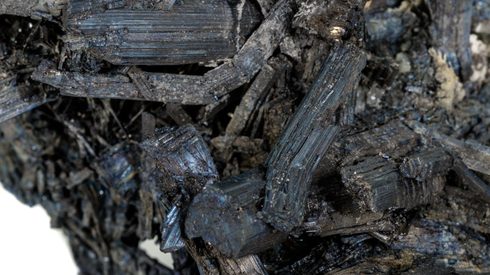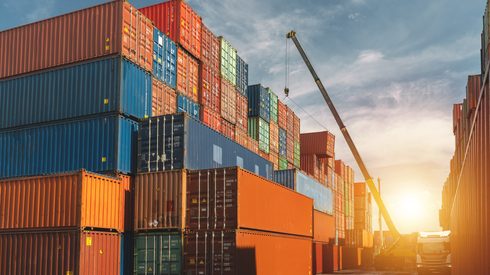Two weeks ago, the District Court in Daegu, South Korea, approved the seizure of Nippon Steel assets in the country to compensate Korean men forced to work in Nippon’s factories during the Second World War, when Korea was under Japanese rule. Nippon immediately appealed the verdict and Japanese government officials promised retaliation if assets are confiscated.
The row, which has been examined in various South Korean courts for several years now, is the latest flashpoint in an increasingly tetchy relationship between Japan and South Korea, which experts say is now increasingly threatening business ties between the two nations.
The situation has intensified just over a year after Japan stripped South Korea of its ‘white-list’ preferential trade status in July 2019. One month after that move, South Korean customs then troubled scrap market participants by ramping up radiation checks on Japanese cargoes arriving at ports, although that situation was relaxed shortly thereafter.
Reducing reliance
Japan and South Korea are heavily interdependent in the metal scrap trade. Combined Japanese exports of aluminium, copper wire and steel scrap to South Korea totaled nearly 1.70 million tonnes in January-June 2020 and were worth more than ¥55 billion ($521 million), according to official statistics.
While South Korea has taken in 20.6% of Japan’s copper wire exports in 2020 so far – slightly up from 19.9% in the full year of 2019 – steel scrap arrivals so far this year only account for 33.4% of Japan’s exports, compared with 51.4% for the whole of 2019.
Rather than strained relations, though, the reason for this drop is more likely to be down to the closure of several South Korean steel mills and higher demand for Japanese steel scrap from buyers in Vietnam, Taiwan and Bangladesh.
Japanese scrap market participants told Fastmarkets that the current deterioration in trade relations is not currently affecting heavy industrial sectors such as scrap, but they had noticed concerning levels of conflict in the consumer and retail goods sectors.
“In the scrap industry, both countries have long relationships and there are many Korean people working in Japan as scrap dealers. We are so close in terms of location, that we really don’t have the image of exporting when we sell to [South] Korea – it’s like a domestic sale,” one Japanese steel scrap exporter told Fastmarkets.
“The current governments hate each other, but the actual business world is different. I do think there is a certain impact for businesses – I don’t deny that – but both countries are dependent on each other,” he added.
Any blocking of Japanese scrap shipments by South Korea would be entirely self-defeating, a second Japanese scrap exporter said.
“South Korean mills cannot produce steel unless they import Japanese scrap – they buy a great deal of it. So if import restrictions are imposed solely due to political issues, South Korea’s economy will not turn around,” he said.
Despite the traditional closeness of business ties between the countries, there has been a concerted effort by both nations to reduce their mutual reliance in recent years. And one method used by the Japanese government has been to introduce export controls.
In July 2019, Japan applied export controls on shipments from Japan to South Korea on certain materials used in the production of semiconductors, which is a key South Korean industry.
“Last year’s sanctions [on exports] of semiconductors parts [has] proved to be ineffective because Korean manufacturers simply changed supply chain or Japanese corporations moved to [South] Korea,” according to Hyun Hak Kim, associate professor in the Department of Economics at Kookmin University, South Korea.
“Japan’s government may think the [South] Korean economy still depends on Japan, but… the sanctions were not effective,” he said.
Stricter restrictions
Experts questioned by Fastmarkets said more export controls and sanctions were likely to be applied in the coming year.
“Japan may even extend tighter controls on more goods that are exported from Japan to South Korea in the [next few] months,” Sher Mehta, director of macroeconomic research and country analysis at Virtuoso Economics, told Fastmarkets. “Moreover, Japan could tighten visa [controls] for South Koreans.”
He added that there could be “more widespread boycotts of Japanese… consumer goods and automobiles in South Korea, rising financial losses for Japanese firms in South Korea and concerted attempts by South Korea to lower its dependence on Japan for certain categories of exports, particularly in the technology space.”
The Covid-19 crisis has had a negative impact on both economies, with the International Monetary Fund (IMF) predicting in June that Japan’s Gross Domestic Product (GDP) will contract by 5.8% this year, while it expects a 2.1% contraction in South Korea’s GDP.
But the South Korean economy would have larger downside risks than Japan should trade relations between the two countries deteriorate further, according to Mehta, because its economy is more reliant on external trade, including imports of semiconductors, semiconductor manufacturing devices and certain chemicals from Japan.
“If Japan resorts to stricter export controls for certain goods, then South Korea would have no option but to either cut back on production or search for [alternative sources, for which] it would possibly have to pay a higher price. This in turn could affect the competitiveness of its [own] exports,” Mehta said.
Failed diplomacy
Another sign of the worsening relations between the two countries was the Japanese government launching an anti-dumping probe in June 2020 into imports of potassium carbonate from South Korea, which is expected to be completed within a year.
“With relations between the two countries going downhill, it could be that these tariffs are actually imposed,” Mehta said.
Associate professor Kim agreed that trading and diplomatic relations between the countries are likely to worsen, but stressed the importance of the mutual dependency between the two economies.
“The current [South] Korean administration is pursuing its identity in ‘anti-Japanism’. Therefore, president Moon Jae-in wants to push harder because it is helpful for his approval ratings,” Kim said.
“In this situation, Japan has [no option than] to respond harshly. Both governments may use whatever they can on the economic side, but I don’t think this tension will develop to a military level,” he added.
Johan Krijgsman, principal at consulting risk firm Krijgsman & Associates, expressed dismay that relations between the two countries have worsened.
“It is an important and bothersome question why, at this late date, and in these international circumstances particularly, that two friendly countries cannot agree between themselves to put old issues behind them,” he said.
“This is a failure of diplomacy and politics, and I do not think I will speculate [about] when an agreement might be reached,” he added.
With Japan-South Korea relations at an all-time low in recent history, market participants will be hoping that the spat can be resolved through diplomatic channels before the metals trade becomes more heavily affected.
Interviews with analysts contained in this article were carried out together with experts from Euromoney Country Risk (ECR).






